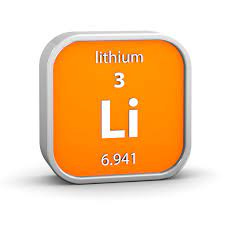Should Oil Companies Be Charged with Homicide?
Intriguing question, isn't it? 350 Chicago Newsletter, April 18th, 2023
In Brief
Should Big Oil be Charged with Homicide?
Researchers David Arkush, a director at consumer advocacy group Public Citizen and Donald Braman, a law professor at George Washington University argue that these companies should be. Since Big Oil in America has known, due to their own internal research, since at least 1968 that their product kills and would cause catastrophic global warming, they are, according to these authors, guilty of negligent homicide. Additionally, these oil companies engaged in a decades long disinformation campaign to confuse the public and prevent any meaningful action on climate change. For more information click here.
Time to Go Fully Electric!
We have to get the government to act. We have to get the Big Banks to act. We have to get the Fossil Fuel industries to act. But this year, finally, due to an unprecedented climate law passed by the Democrats, now we have the power to directly attack the climate crisis. Rewiring America, the leading nonprofit working to end the climate crisis by educating us all on all the difficult questions that come with personal transition from fossil fuels to electricity, has published a guide to help citizens navigate the climate provisions of the IRA. Their website offers a great deal of information: https://www.rewiringamerica.org/. Check it out. But for more information on ditching fossil fuels and doing your part to save the livable planet, download their free guide: Go Electric! Now: Rewiring America's Guide to the IRA Act.
New Climate Crisis Themed Exhibit
A new exhibit in Hyde Park features pieces by Chicago-based artists centering the climate crisis. The exhibit’s title, The Chicago Cli-Fi Library, refers to an emerging literary genre known as “cli-fi” or “climate fiction”. Often overlapping with genres like horror and science-fiction, cli-fi stories explore the effects of global warming. The pieces in The Chicago Cli-Fi Library include sculptures, photos, video installations, and a curated selection of cli-fi books that were created in an attempt to make sense of the paralysis of the contemporary art world in response to the prospects of climate change. The exhibit is open through June 11 at the University of Chicago’s Neubauer Collegium for Culture and Society.
Chicago Non-Profit Blacks in Green Wins 10 Million EPA Award
The organization Blacks in Green on Chicago’s West Side has been designated as the lead organization for the EPA Region 5 Territory, which includes 35 tribal nations, Illinois, Indiana, Michigan, Minnesota, Ohio and Wisconsin.
CEO Naomi Davis said, “We are about — in our core founding vision and mission — self-sustaining Black communities everywhere. And the mission being to reinvent the walk to work, walk to shop, walk to learn, walk to play village, where African Americans own the businesses, own the land, and live the conservation lifestyle.” The grant is meant to help Blacks in Green and several other organizations develop Environmental Justice Technical Assistance Centers. Click here to read more.
Will the Mining Boom for Renewable Energy Metals End Up Destroying Us?
by Rich Foss
In order to save ourselves from our own greed and denialism that has resulted in a degraded, and ever-more inhospitable ecosystem, the world has turned to renewable energy as a way out of the climate crisis. A mining boom is on the horizon as the growing number of solar arrays, wind turbines and EVs demands often hard to get metals and minerals such as lithium, nickel, cobalt, copper, etc. According to Andrew Nikiforuk, a celebrated writer on energy for two decades: “the world needs a better plan to avoid collapse other than replacing one unsustainable fossil fuel system with another intensive mining system powered by even more extreme energies.” The questions are: will we have enough of these rare metals to completely rid ourselves of fossil fuels and, thereby, the threat of climate change? And the second: Will we destroy the world ecosystem in the process of trying to save it from a collapsing climate?
As for the first question, the answers are murky at best. We have all the ore we need to power us deep into the next century, says one expert, while the very next claims we are currently scraping the bottom of the barrel for such metals as lithium.
Can we mine the earth for the rare metals we need now in our race to keep warming under 1.5 degrees, but do it ethically and sustainably? Mining and energy corporations do not have a good track record on either. We know the stories of slave labor, of blood diamonds, of exploitation of labor, of stealing the source country’s wealth. The corruption and the wanton devastation left behind when the mine or well stops producing is a common story told all over the world.
Yet, we hear little from the IPCC about ethical, sustainable mining. Their latest report doesn’t touch the topic. And the latest COP, COP 27 in Egypt, the problems with scarce minerals/metals, or the dangers of mining for them wasn't on the agenda. Such silence is concerning.
Simon Michaux who works now for Finland’s Geological Society, has calculated, according to Nikiforuk, “to replace 46,423 power stations run by oil, coal, gas and nuclear energy would require the construction of 586,000 power stations run by wind, solar and hydrogen. That’s 10 times greater than the existing system due to the low power density of renewables. Building such infrastructure will require an incredible
volume of metals and rare earth minerals and a vastly larger scale of mining.” This will require intensive mining operations like the world has ever seen. Some experts say we shouldn’t go there. Nikiforuk offers this as an alternate solution to renewables: “Fundamentally, we need to talk about a future of less instead of a future of more.” He has a point. Over-consumption in the West, especially the United States, has super-charged the climate crisis. Certainly reducing our rate of consumption in the West would help, but changing these long embedded cultural values within less than 7 years, especially in America, doesn’t seem possible. Not to mention that the two other giant emitters of GHG emissions, China and India, do not have the same problem with over-consumption, so living with less only takes us so far. Without renewables we’d have to count on many other solutions like regenerative farming, reforestation and energy conservation. We would need to invent carbon capture machines that can capture and sequester emissions from factories, homes and the tailpipe of our cars — from everywhere.
What these skeptics do not address is the role of recycling and the invention of other types of renewable batteries made from iron, a far more common, and thereby easier to obtain source They also do not address the possibility of Geothermal plants generating usable byproduct metals. For instance, the Geothermal power plant in California has found lithium coming up from the water of the well. Enhanced Geothemal Systems (EGS)– a process of generating geothermal energy that is not limited to geographical areas can extend the range of where geothermal wells can be built – could similarly provide access to lithium and other minerals such as zinc, manganese, potassium and iron-silica without invasive mining.
The world has little choice but to speed ahead with renewable energy, and to the mining of these resources since the IPCC says we have less than 7 years to cut the world’s emissions by 43% or face catastrophic consequences. But, we do need to start talking about how we do this without destroying all that we are trying to save. To learn more, read the article here.
“A Rapidly Closing Window of Opportunity”
By Joshua Horwitz
The latest scientific report on climate change has been released by the IPCC: the synthesis report for the IPCC’s Sixth Assessment Report. These IPCC reports are developed by a wide group of scientists and academics from across the world and represent the overwhelming worldwide scientific consensus on the causes and effects of climate change. Here are some key takeaways from the Summary for Policymakers:
HUMANS ARE CAUSING THE CLIMATE IMPACT: There is no doubt about it; humans are the cause of climate change: “Human-caused climate change is already affecting many weather and climate extremes in every region across the globe. This has led to widespread adverse impacts and related losses and damages to nature and people (high confidence)” (A.2)
WE CAN FIX THE PROBLEM: Many new technologies to mitigate climate change — even beyond wind and solar— are becoming viable, cost effective, and popular: “Several mitigation options, notably solar energy, wind energy, electrification of urban systems, urban green infrastructure, energy efficiency, demand-side management, improved forest- and crop/grassland management, and reduced food waste and loss, are technically viable, are becoming increasingly cost effective and are generally supported by the public.” (A.4.2, emphasis added)
GLOBAL AGREEMENTS ARE WORKING: Global agreements such as the Paris Agreement and the Kyoto Protocol have led to better target-setting by governmental organizations, better transparency for climate action, and effective successful policies. “In many countries, policies have enhanced energy efficiency, reduced rates of deforestation and accelerated technology deployment, leading to avoided and in some cases reduced or removed emissions (high confidence)” However- “These reductions have only partly offset global emissions growth (high confidence)” (A.4.1, emphasis added)
FOLLOW THE MONEY: Worldwide financing for climate change mitigation and adaptation are well short of where they need to be: “Current global financial flows for adaptation are insufficient for, and constrain implementation of, adaptation options, especially in developing countries (high confidence)” (A.3)
DISPROPORTIONATE IMPACT: Many sections refer to particularly hard-hit communities: “Vulnerable communities who have historically contributed the least to current climate change are disproportionately affected (high confidence)” (A.2.1, C.5)
ALL IS NOT LOST: We still have room to fix the problem, and even if some changes are unavoidable, we can still prevent significant harm to the planet if we act quickly. But the warmer the planet gets, the harder it is to fix: “Some future changes are unavoidable and/or irreversible but can be limited by deep, rapid and sustained global greenhouse gas emissions reduction. The likelihood of abrupt and/or irreversible changes increases with higher global warming levels. … (high confidence)” (B.3)
AIM FOR NET ZERO: As a society we must aim to reduce carbon emissions to zero: “Limiting human-caused global warming requires net zero CO2 emissions. Cumulative carbon emissions until the time of reaching net-zero CO2 emissions and the level of greenhouse gas emission reductions this decade largely determine whether warming can be limited to 1.5°C or 2°C (high confidence).” (B.5)
OUR ACTIONS WILL AFFECT FUTURE GENERATIONS: “Climate change is a threat to human well-being and planetary health (very high confidence). There is a rapidly closing window of opportunity to secure a liveable and sustainable future for all (very high confidence) … The choices and actions implemented in this decade will have impacts now and for thousands of years (high confidence)” (C.1)











